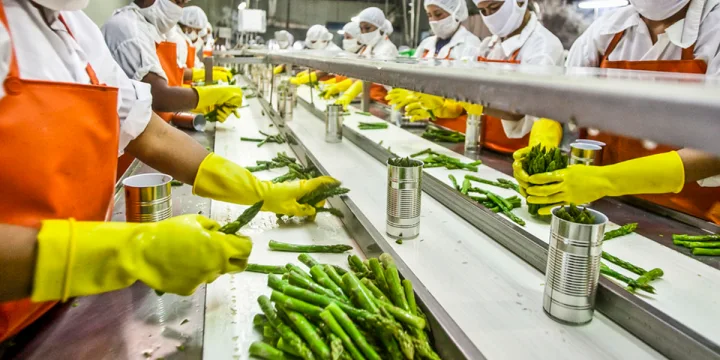Chitosan is used in food additives for its unique functional properties, which enhance the quality, safety, and shelf life of food products. Here’s how chitosan works in various applications as a food additive:
1. As a Natural Preservative
Antimicrobial Action: Chitosan has antimicrobial properties against a wide range of microorganisms, including bacteria, fungi, and yeast.
Its mechanism involves: Cell Membrane Disruption: The positively charged amino groups in chitosan interact with negatively charged microbial cell membranes, increasing permeability and causing cell lysis.
Binding to DNA/Proteins: Chitosan can bind to microbial DNA or proteins, inhibiting replication and metabolic processes.
Application: Used to extend the shelf life of perishable foods like fruits, vegetables, meat, and seafood.
2. As a Film-Forming Agent
Edible Coatings and Films: Chitosan can form transparent, biodegradable films that act as a protective barrier around food products.
Functions of these films include: Reducing moisture loss. Acting as an oxygen barrier, slowing oxidative spoilage. Delivering antimicrobial agents when combined with other bioactive compounds.
Application: Coatings for fruits, vegetables, cheese, or bakery products to preserve freshness.
3. As a Stabilizer and Emulsifier
Stabilization of Emulsions: Chitosan stabilizes oil-in-water emulsions due to its ability to adsorb at oil-water interfaces, enhancing the texture and consistency of foods.
Thickening Agent: Its high molecular weight and water-binding ability contribute to the viscosity of food products like sauces, dressings, and beverages.
4. As a Fat and Cholesterol Binder
Fat-Binding Properties: Chitosan binds to dietary fats in the digestive tract, preventing their absorption. This property is leveraged in low-fat or dietetic food products.
Cholesterol Reduction: By forming complexes with bile acids, chitosan reduces cholesterol reabsorption, offering potential health benefits.
5. As a Clarifying Agent
Food and Beverage Clarification: Chitosan acts as a flocculant, binding to suspended particles in liquids like fruit juices, wine, and beer. These particles aggregate and settle, resulting in clearer products.
6. As a Nutritional Enhancer
Dietary Fiber Source: Chitosan serves as a dietary fiber, offering potential benefits for gut health and digestion.
Carrier for Nutrients: Its ability to encapsulate bioactive compounds like vitamins, minerals, or probiotics enhances nutrient delivery and stability.
7. As an Antioxidant
Oxidative Protection: Chitosan scavenges free radicals, helping to delay the oxidative degradation of lipids and other components in foods.
Examples of Food Applications:
- Meat Products: Chitosan-based coatings or additives can inhibit microbial growth and lipid oxidation.
- Fruits and Vegetables: Edible chitosan coatings reduce moisture loss and microbial spoilage.
- Bakery Items: Acts as a shelf-life extender by reducing staling and microbial contamination.
- Seafood: Prevents microbial spoilage and enhances quality during storage.
Chitosan’s multifunctionality as a natural, non-toxic, and biodegradable additive makes it an ideal choice for improving the safety and quality of foods while meeting consumer demand for clean-label and sustainable ingredients.
Orison Chemicals Limited offer food grade of Chitosan based in China, with different “Degree of Deacetylation (DD)” and “Viscosity” for different applications in food industry. Pls visit our product ” Chitosan Food Grade”.







